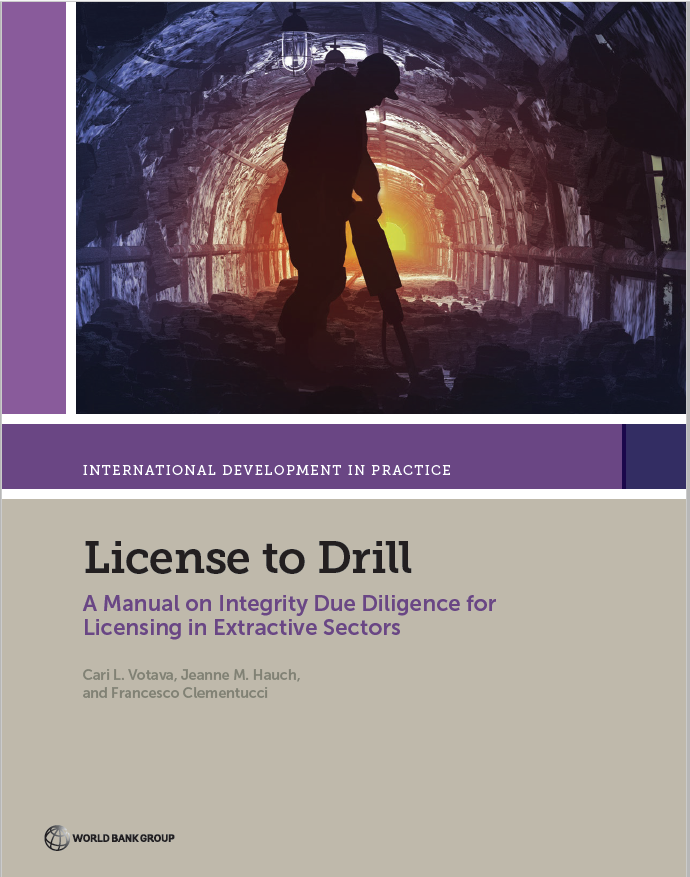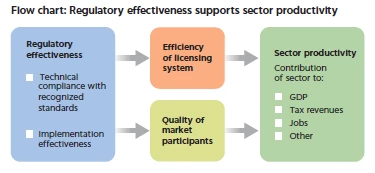
Recognizing this, 24 African countries are among the 51+ countries globally that have committed to improve transparency, integrity and accountability in extractive sectors by complying with transparency obligations of the Extractive Industries Transparency Initiative (EITI). These requirements call for the systematic public disclosure of critical regulatory information, the concealment of which allows corruption to flourish, such as:
- Identity of beneficial owners (i.e. the persons that own and control licensed companies)
- Systematic reports on exploration and extractives activities, and
- Financial data and transactions related to state investment in state-owned extractive companies
Challenges
Improving regulatory transparency through disclosure of critical information need not be overly complicated or expensive. The biggest hurdle is overcoming the interests of those opposed to public disclosure of information, the concealment of which makes corruption largely invisible. Corrupt elites will try to impede progress, however, compliance assessments of countries that have committed to comply with EITI requirements will reveal whose commitments to extractive transparency are genuine.
Effective regulatory transparency begins with the laws. In many countries, laws lack adequately enforceable provisions to hold officials accountable for compliance with transparency and integrity safeguards. Thus, accountability for poorly implemented regulatory systems and processes which conceal corruption, is obscured.
Improvements to underlying legal and regulatory frameworks are needed that place legal obligations for disclosure of critical information on regulatory officials–rather than licensed companies. Laws should obligate companies applying for critical licenses to provide full and complete beneficial ownership identity details to regulatory officials who should be obligated to check and verify completeness and accuracy using credible independent sources. And regulatory officials should be responsible for public disclosure of required information. Companies that fail to provide full and complete information should not be licensed. As the names of those seeking to conceal beneficial ownership roles, are not likely to be found on licensing applications or in company or beneficial ownership registries, independent verification by regulatory officials is absolutely critical.
Thus, legal frameworks that support effective implementation of beneficial ownership disclosure principles should expressly: (a) prohibit officials from granting critical licenses where full and accurate beneficial ownership information is lacking; (b) mandate suspension of licenses where complete information is not provided; and (c) hold officials responsible for non-disclosure of requisite information. For countries serious about meeting EITI’s January 2020 target for compliance, such amendments should already be in progress.
Implementation: devil in the details
 To support efforts by countries to improve extractives transparency, the World Bank has released a new publication – License to Drill: Manual on Integrity Due Diligence for Extractives Licensing, which provides good practice options to strengthen regulatory integrity in licensing processes.
To support efforts by countries to improve extractives transparency, the World Bank has released a new publication – License to Drill: Manual on Integrity Due Diligence for Extractives Licensing, which provides good practice options to strengthen regulatory integrity in licensing processes.
Recently, the World Bank organized a series of public panel discussions in three West African countries where extractives and natural resources are critical to economic growth, and corruption vulnerabilities remain a challenge: Ghana, Liberia and Sierra Leone. Officials presented plans to improve extractive sector transparency, so stakeholders and donors could consider how best to support those efforts. While initial progress has been made in all three countries, more remains to be done:
- Ghana: Following some progress in the oil/gas sectors, implementation in mineral sectors is commencing. The Company Act was amended (2016) to require the Registrar-General to collect and maintain beneficial ownership information on registered companies. However, policies on extent of public access to the data, and whether access should be free of charge have yet to be resolved.
- Liberia: The Ministry of Mines and Energy has announced plans to consider adoption of a new mining law. Political and capacity challenges still impede commencement of integrity due diligence checks in licensing, as well as disclosing beneficial ownership and other critical information.
- Sierra Leone: The public cadaster has been modified to accommodate beneficial ownership information, and officials are working toward verifying identity of current licensees. The Government has adopted a Minerals Policy, Artisanal Mining Policy and Geodata Policy that are informing amendments to relevant laws to clarify disclosure obligations, improve efficiency and effectiveness of licensing and other regulatory processes.
Stepping Up

Contributors include World Bank Program Leader and Lead Economist Errol Graham, Lead Financial Management Specialist Donald Mphande and Lead Public Sector Specialist Roland Clarke.


Join the Conversation